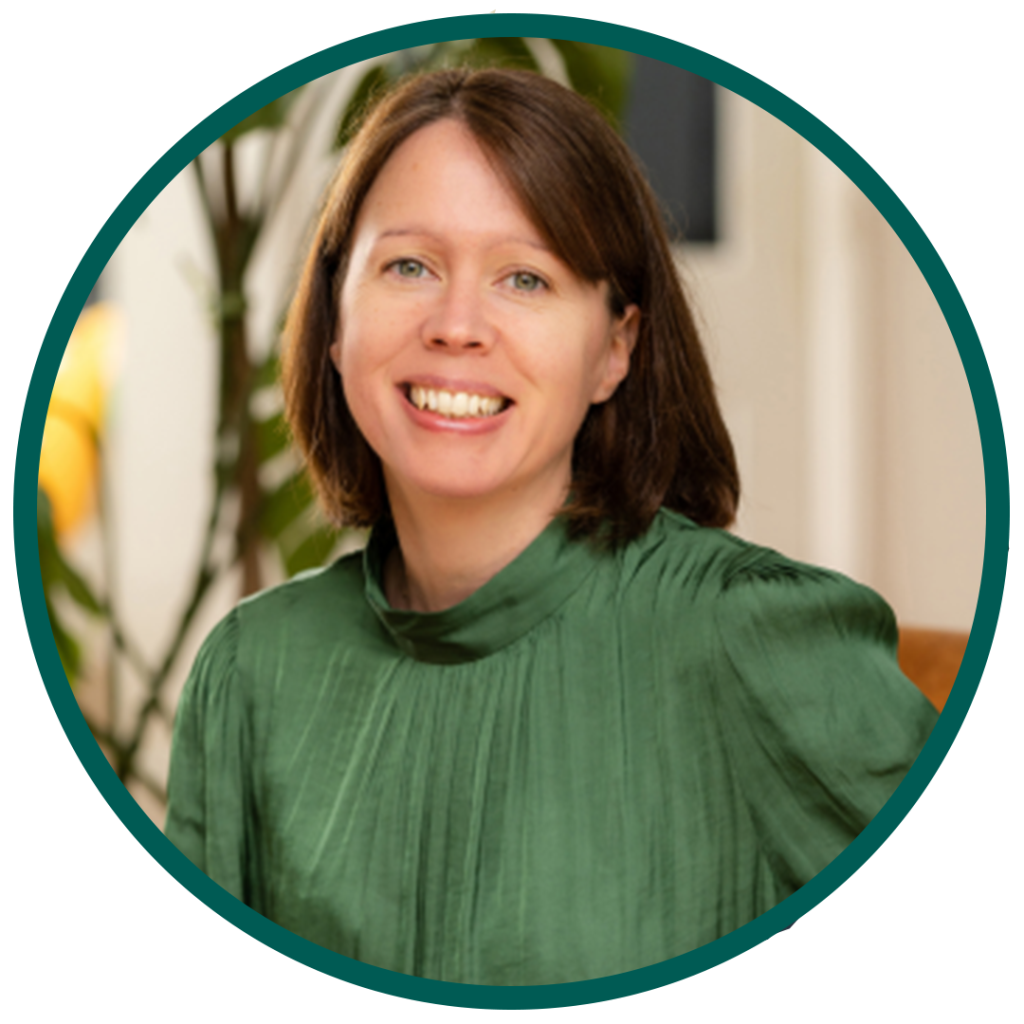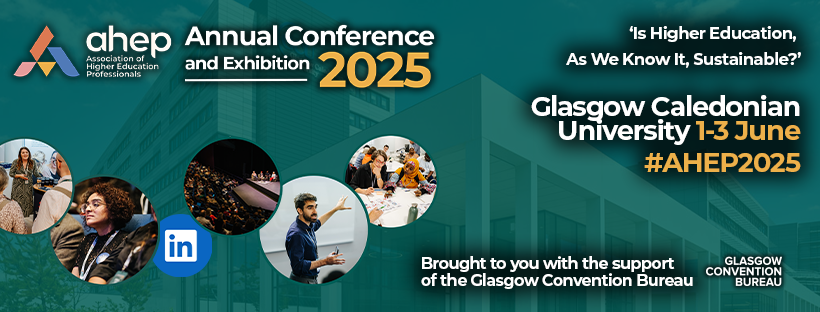Development Monthly | #43 May 2025 | Connection and Compassion: Rethinking Relationships in HE

“I never planned to work in HE.”
“I’m motivated to work in HE to make a difference to the lives of others.”
These are the statements that most of my 30+ guests on Job Shadowing HE have in common. As a Higher Education professional yourself, these statements may not come as a surprise. The findings don’t surprise me either.
Over 25+ years, I have worked with hundreds of HE colleagues and the majority have the same motivation. Yet despite our collective drive and the positive mark we make on the sector’s success, I remain fascinated that we still shy away from talking about our jobs. OK, we may do so with our closest colleagues although the space for day-to-day chat has changed quite a bit through hybrid working. Sector networks provide another forum, but they are of the moment. Time and money for settings such as conferences can also be a barrier to participation. Beyond those settings, we don’t say much about our jobs. Not with colleagues in other parts of the institution. Not with people outside HE. And if you do talk about your job in other settings, and say that you work in a university, I imagine I am not the only one who has retracted to the position of saying what I don’t do (i.e. teach) rather than what I do.
Is this a problem? In my view it is problematic for three reasons:
Firstly, HE institutions are big and complex places. Workplace context therefore counts for a lot, including understanding what other people do in their jobs. Context plays a big part in how you form working relationships, how you can make things work most effectively and how you understand the part you play in the bigger picture. Without context, we can have a narrow and uninformed view, and that leads to poor outcomes for us and for our institutions.
Secondly, if we don’t talk and share information and experiences, how do we support each other in our professional development and career aspirations? There remains an element of mystery in how people progress their careers in HE, and we could help solve this if we were more open about career journeys.
Lastly, when will we reach a day when we have a proportion of colleagues who planned to work in HE? That it is seen as a career destination alongside other professions? If we were able to share more about the fulfilling roles and careers that are possible within the sector, we open up a more diverse talent pipeline.
Helping to address these challenges was my main motivation for creating the Job Shadowing HE podcast back in November 2023. A series of structured and researched conversations with people who work in HE sharing what’s behind their jobs, their career backgrounds, their challenges and their solutions. A space where we hear more about the people behind the roles and why the roles exist.
A free resource that is offered in bite-sized half hour audio chunks that fit well into a short break, walk or commute. The podcast alone cannot fully address the problems I set out above, but feedback I’ve received suggests it supplements the good work you are doing in your own institutions and the focussed initiatives happening through bodies such as AHEP.
There are now over 35 episodes of Job Shadowing HE available. It has an 80% UK audience, as well as an international following in 79 countries. The episodes go far and wide in the people and roles that have been covered so far. Colleagues who work in universities, in smaller specialist HEIs and in bodies that represent the sector are just some of the guests who have appeared to start to reflect the diversity of roles in the sector.
I have been particularly keen to uncover what goes on behind some of the more obscure job titles. The ‘chiefs’ are a good illustration of this. For example, the roles of Chief of Staff, Chief Student Officer and Chief Financial Officer each feature in episodes of the podcast. You may or may not be a fan of the ‘chief’ title that has emerged in HE in recent years, but what I was keen to draw out of those conversations were the people behind the title they had been given. What they do day-to-day. What they care about. That they share the motivations of wanting to make a positive difference, even if they also have responsibility for some of the tougher institutional decision-making.
The podcast not only focuses on specific jobs, but puts the roles into context of where we find ourselves in HE today. Unsurprisingly, resilience is a theme that runs through many episodes whether that is in my conversations with a Vice-Chancellor or a Project Manager. We each have to find our own way of managing our resilience, and while my guests’ solutions will be unique to them, knowing that solutions can be found, or that time will pass, can be helpful for others to hear.
Working within a changing environment is another topic that threads through the podcast series. No person’s job or context stays the same as HE is changing rapidly, responding to changing student, financial and political climates. Change is hard to respond to, it is hard to manage, and it is hard to lead. But having good leadership, good management and opportunities for good engagement makes a real difference.
While the topic of change features in nearly every episode, the Managing Change Mini-Series offers the opportunity to hear from colleagues who are involved in managing change in different parts of an institution. The Mini-Series does not try to offer a fully comprehensive overview of change management. But it does show the centrality of people in any change process if the intended outcomes are to be achieved.
Sector change is not just operational. It is also about responding to the needs of the communities that make up our student and staff bodies. I said earlier that the podcast goes far and wide in its guestlist. My inclusion of a Coordinating Chaplain of a large university was probably completely unexpected by listeners yet, in my view, proves to be one of the most interesting episodes. Of course, there are parts of the episode in which religion is discussed. But those conversations are set within the HE context, notably that many institutions have hugely diverse communities and that the concept of ‘disagreeing well’ is central to respecting and accepting different views. And this concept is not just relevant to student communities. It is transferrable to how we work together successfully as a community of colleagues. The episode gives much pause for thought.
Career progression is important to so many colleagues and is therefore a topic embedded into the podcast. My guest in episode 1 sets the scene beautifully in being up-front that there are no cookie-cutter pathways. And my subsequent guests talk about their various routes which have included sideways moves, disappointments, unanticipated development opportunities, networking, moving into interim roles, moving between small and large institutions, working in sector bodies and much more.
No guest, even up to Vice-Chancellor level, has just breezed through their career. The recent Leadership Reflections Mini-Series in fact contains some very open and honest reflections from colleagues at different stages of their leadership careers. It also includes insights from one of the sector’s leading recruitment firms about how the leadership landscape is evolving. And if you are interested in recruitment firm thoughts more generally, there is an episode in Series 2 dedicated to what they do and how they work.
Job Shadowing HE is all about people. It’s a resource for people and about people. Yes, we talk about the job, the career path, the change, the challenges – we also find out some things about what people do outside their jobs! But ultimately the podcast is there to illustrate the humanity, generosity and inspiration within our sector. The podcast would be nothing without my guests.
We have much to be proud of by working in Higher Education. We make a difference to the lives of students. We play a pivotal role in institutions’ success. And we develop some fantastic professionals.
Colleagues who already listen to the podcast will each have their own take-aways from the episodes so far and I would be interested to know what they are. I think mine would be:
- Career paths take many twists and turns – and that’s OK
- Take opportunities that come your way or, even better, find opportunities to take
- Everyone faces challenges: you don’t have to find solutions alone
- HE institutions are complex places, but they can also be invigorating and supportive
- Hearing other people’s career stories can be helpful, informative, surprising and reassuring.
Not listening yet? Do take a listen. I would be really interested to know what your take-aways are once you do. You can find Job Shadowing HE at www.jobshadowinghe.com or any major podcast platform. You can also follow me on LinkedIn where I post regularly about the podcast and on other, HE matters.
Susannah Marsden is a freelance Higher Education consultant and an AHEP Fellow. You can find out more about her on Linkedin or at www.susannahmarsden.co.uk


0 comments on “Behind the Scenes – The Job Shadowing HE Podcast”